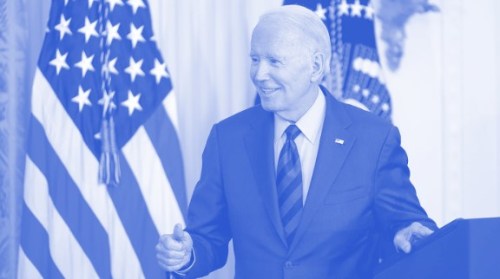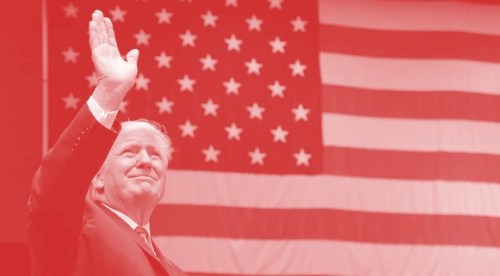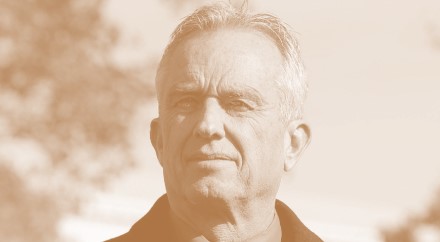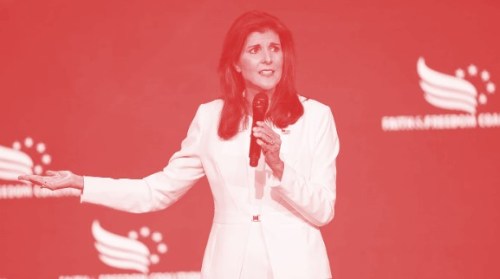Protests threaten to overshadow DNC
Tens of thousands of activists are expected to protest in Chicago this week, threatening to overshadow the Democratic National Convention as the party looks to rally around its newly minted presidential ticket.
Many of the protesters will be there to voice anger over the Biden administration’s handling of the Israel-Hamas war. In recent days, they have started to turn their attention to Vice President Harris, the new Democratic presidential nominee, interrupting her at multiple rallies.
The large number of demonstrators anticipated in the city has already evoked comparisons to the 1968 Democratic National Convention, which was also held in Chicago and saw large numbers of protesters clash with police.
Chicago political operative Victor Reyes suggested if the protesters this week “are hell-bent on creating chaos and getting arrests and disrupting it and creating mayhem — if they’re intent on that, and some are, then it could overshadow the actual convention.”
Democrats are eager to gather in the Windy City as they celebrate the nomination of Harris and her running mate, Minnesota Gov. Tim Walz (D), following President Biden’s decision to withdraw from the race after his disastrous debate performance against former President Trump. The party was quick to coalesce around Harris and Walz, and the pair has garnered support from both progressives and the more moderate wing of the party.
But the protests, many of them directed at the handling of the conflict in the Middle East, could impose a stark split screen effect on the convention that could put a damper on some of the festivities, especially if the demonstrations turn violent.
Some leading activists have sought to tamp down concerns about potential tumult.
“I don’t think the anticipation is that there’s going to be tension,” said Hatem Abudayyeh, national chair of the U.S. Palestinian Community Network and a spokesperson for the Coalition to March on the DNC. “I think the anticipation is that we’re going to do something historic.”
Abudayyeh said there was going to be “beautiful art” and “powerful speeches” as part of the protests and noted that his organization has worked to ensure demonstrators will have necessary security and legal protection.
The event will also be a test for first-term Chicago Mayor Brandon Johnson (D), a progressive who has sought to ease the public’s concerns about the event while also ensuring the protesters’ right to free speech.
“As far as making sure that we’re doing our part to keep people safe, that is top priority for me,” Johnson told The Hill’s “The Switch Up” podcast ahead of the event.
“It’s my responsibility as mayor of the city of Chicago to protect the sanctity of our democracy, and I’m going to do that,” he continued. “People have a fundamental right to express their grievances towards the government. They get to do it in a safe, protected way. We also get to showcase the beauty of our city.”
Johnson also told reporters during a news conference Friday that he was “going to make sure that these individuals have everything that they need to make sure that their voices are heard.”
The Coalition to March on the DNC scored a victory Friday after the city said it would allow the group to set up stages and a sound system in Union Park, in addition to setting up seven portable toilets. The two sides have been going back and forth over the permitted route for protesters and accommodations.
Adding to the air of anxiety surrounding the event are the parallels to the 1968 convention, which took place after President Lyndon B. Johnson’s decision not to run for another term. That event, in which a fractured Democratic Party was also grappling with the assassinations of civil rights leader Martin Luther King Jr. and presidential candidate Robert F. Kennedy, was rocked by violent demonstrations spurred by anger over the Vietnam War.
This time, however, Democrats are largely unified around the top of their ticket, and party leaders are expressing optimism about how the event will unfold.
“The stage has been set for people to have their voices heard, but it doesn’t feel like it’s the thing that’s going to dominate the narrative of the convention,” Chicago-based Democratic strategist Pete Giangreco said.
The Harris campaign has noted previously to The Hill that she’s committed to engaging with Arab, Muslim and Palestinian community members about the war, and Harris has been vocal about the need for a cease-fire deal.
“If you had asked me four months ago, yeah, I was really nervous. I think the tone has changed so much,” Democratic strategist Michael Starr Hopkins said, noting Walz’s talk of “joy,” which he said is something that has “been injected not just into the Democratic Party in the last couple weeks, but the country.”
The convention itself is also tamping down concerns over the demonstrations.
“Thousands of Democrats from all across the country are showing up here in Chicago to rally behind the Harris-Walz nomination because they believe in the vision of hope and progress this ticket represents,” Emily Soong, a Democratic National Convention spokesperson, told The Hill in a statement.
“We support law enforcement’s efforts to protect the right to peaceful protest while not allowing any violence. Our focus is telling the story of Vice President Harris and Governor Tim Walz to the American people and sharing their bold vision for the future.”
At the same time, 30 “uncommitted” delegates will be heading inside the convention to make their voices heard about the war. They will be among the few vocal members of the party who protested the administration’s handling of the war that will be allowed inside the convention hall.
“My hope is that there will be a productive tension that has the Democratic Party seriously grappling with what it means that for the first time in our country’s history, there are 30 delegates being sent to the convention with an explicitly anti-war mandate, with an explicitly pro-Palestinian human rights mandate,” Abbas Alawieh, an uncommitted delegate from Michigan and one of the co-chairs of the Uncommitted National Movement, told The Hill.
“I think that’s very significant, and it creates a tension on the inside that I hope will be a productive one,” he said.
Cheyanne Daniels contributed.
Copyright 2023 Nexstar Media Inc. All rights reserved. This material may not be published, broadcast, rewritten, or redistributed.





